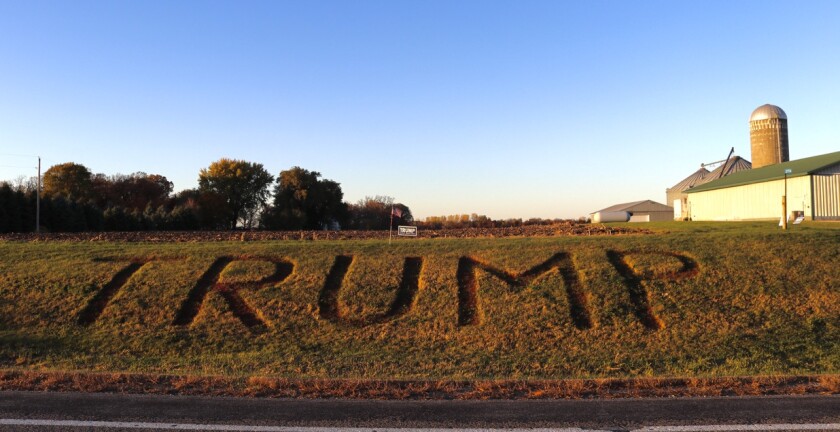The Trump administration implemented 25% tariffs on Canadian and Mexican imports beginning Saturday, Feb. 1, according to White House Press Secretary Karoline Leavitt.
Canada and Mexico are the United States’ first and third largest suppliers of agricultural products, according to USDA’s Economic Research Service, averaging $30.9 billion and $25.5 billion in 2017-21, respectively.
ADVERTISEMENT
At the 2023 Minnesota Ag & Food Summit , Minnesota Agriculture Commissioner Thom Petersen said the Minnesota-Canada agricultural trade is a strong and balanced partnership that both sides wanted to see grow.
“I can’t tell you how important that relationship with Canada is," he said.
According to the U.S. Census Bureau, Minnesota imported $955 million in agricultural products from Canada in 2022, including $140 million in live bovine animals, $110 million in oats, $56 million in baked goods, $52 million in live pigs and $50 million in wheat and meslin.
Canadian fertilizer imports
The tariffs on Canadian imports are particularly concerning for the U.S. fertilizer industry.
The U.S. relies on imports for over 95% of its potash fertilizer needs, with nearly 90% of that coming from Canada, according to data from the USDA. Canada also supplies U.S. growers with over 8% of its nitrogen fertilizer needs, accounting for 25% of U.S. nitrogen fertilizer imports.
A disruption to the U.S.-Canadian trade relationship like the imposed tariffs will have “significant ripple effects" not just for farmers but also for the broader food supply chain and ultimately the prices consumers pay at the grocery store, according to The Fertilizer Institute, the nation’s leading voice of the fertilizer industry with roots dating back to 1883.

The Fertilizer Institute President and CEO Corey Rosenbusch said that “ensuring stable, affordable access to fertilizers is critical to maintaining a globally competitive U.S. agricultural sector," and for making food prices affordable for American families.
ADVERTISEMENT
“Given their effects on the broader farm economy, TFI urges the Trump Administration to exempt Canadian potash and other fertilizers from the tariff order," Rosenbusch said. “Especially as we approach the critical time of spring planting where nutrient delivery and application are essential for the harvests that fill American’s dinner tables with abundant and affordable food."
In his statement released shortly after the tariffs announcement by Trump, Rosenbusch said The Fertilizer Institute “stands ready to collaborate with the Trump Administration to spur growth in the fertilizer industry."
“Potash, a vital source of crop nutrition essential for the health and productivity of U.S. agriculture, is a geographically limited resource produced by only a handful of countries worldwide," Rosenbusch said. “While the U.S. produced roughly 400,000 metric tons of potash in 2023, domestic potash consumption that year was approximately 5.3 million metric tons. No substitutes exist for potash as an essential plant nutrient."
Rosenbusch said that including both phosphate and potash on the U.S. Geological Survey’s List of Critical Minerals would be a “decisive step" in bolstering domestic supplies of fertilizer for U.S. growers.
“U.S. agriculture is benefited by a strong trade relationship with Canada that provides farmers with reliable access to essential crop nutrients. An open, fair, predictable, and transparent trading environment is vital to the continued growth of a resilient, competitive, and sustainable fertilizer industry for our farmer customers," Rosenbusch said.












